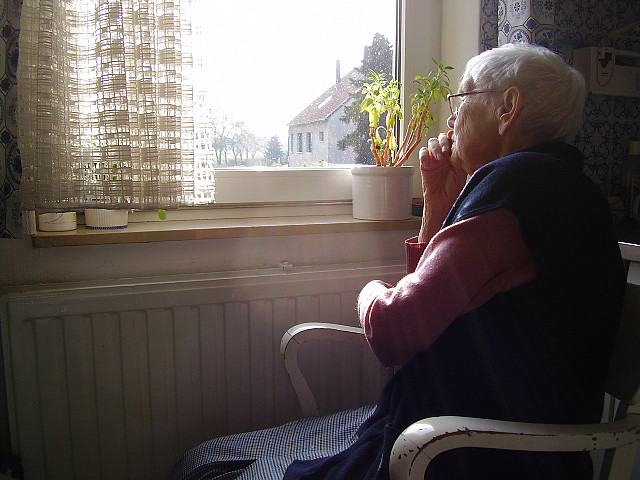Have you thought how you’ll manage in your home as you get older? How would you pay for adaptations to your home if you were affected by illness or disability? It’s probably not something that crosses most people’s minds until either they or a relative or friend experiences practical problems. Perhaps you’d never given the fact you only have one toilet, and it’s upstairs, a second thought. That step up to the front door was only something delivery men had to worry about. It was only when you, or your mum or dad, son or daughter started to struggle with walking that these things started to become an issue. So, where can you go for help when you or a relative or friend struggles to get inside their own home? Would you know who to call?
There is help out there if you know where to go. Local authorities, Care and Repair Cymru, Age Cymru and others can all help or point you in the right direction. There’s also a leaflet put together a few years ago by some of the key stakeholders. What help you get depends on a whole host of factors, such as whether you own or rent your home and what financial resources you have. If you do rent, the help you get depends on who your landlord is. Where you live is also a factor as different areas have different policies and staff. If you need a minor adaptation like a grab rail, you might get it in a few days. If you need a downstairs bathroom, you may be waiting many months or possibly years. As you can see, the home adaptations system can be complex. Stakeholders and policy makers know this and there have been many inquiries and reviews into how the system can be improved – at least six formal ones. [caption id="attachment_3018" align="alignright" width="300"] Image from Flickr by Borya, licensed under the Creative Commons[/caption] In 2013 the Assembly’s Communities, Equality and Local Government carried out an inquiry into the home adaptations system. Its report made a number of recommendations for reform, including introducing a single point of entry to the system within each local authority area – regardless of an individual’s circumstances; clearer guidance from the Welsh Government on how the adaptations system should work; and improvements to how the adaptations system is monitored. A theme that ran through the Committee’s report was the need for more focus on outcomes for individuals – were adaptations actually delivering positive, long-term positive outcomes for people? The Committee found that it wasn’t possible to tell from the limited data that was available at a national level. The Welsh Government accepted some, though not all, of the Committee’s recommendations but had already committed to conducting its own review. That review has now been completed and was published in January 2015. This week in the Assembly, the Minister for Communities and Tackling Poverty will make a statement to the Assembly on that review. The government’s review makes interesting reading. It tackles head-on the suggestion that there should be a unified system for all individuals who need adaptations. It suggests that this could actually mean longer waiting times and reduced budgets. On means-testing, a particularly controversial part of the current system that applies to some adaptations, the review suggests a ‘roadmap’ to removing this test in the long term. Interestingly, the review echoes the Assembly Committee recommendation that we need better data on the adaptations system “to assist the development of good policy”. We’ve now seen this issue examined through various reviews and inquiries six times since 2004. Will there need to be another review? Time will tell, but it’s now for the Minister to consider the recommendations of the most recent review and decide what ones, if any, to take forward.
Image from Flickr by Borya, licensed under the Creative Commons[/caption] In 2013 the Assembly’s Communities, Equality and Local Government carried out an inquiry into the home adaptations system. Its report made a number of recommendations for reform, including introducing a single point of entry to the system within each local authority area – regardless of an individual’s circumstances; clearer guidance from the Welsh Government on how the adaptations system should work; and improvements to how the adaptations system is monitored. A theme that ran through the Committee’s report was the need for more focus on outcomes for individuals – were adaptations actually delivering positive, long-term positive outcomes for people? The Committee found that it wasn’t possible to tell from the limited data that was available at a national level. The Welsh Government accepted some, though not all, of the Committee’s recommendations but had already committed to conducting its own review. That review has now been completed and was published in January 2015. This week in the Assembly, the Minister for Communities and Tackling Poverty will make a statement to the Assembly on that review. The government’s review makes interesting reading. It tackles head-on the suggestion that there should be a unified system for all individuals who need adaptations. It suggests that this could actually mean longer waiting times and reduced budgets. On means-testing, a particularly controversial part of the current system that applies to some adaptations, the review suggests a ‘roadmap’ to removing this test in the long term. Interestingly, the review echoes the Assembly Committee recommendation that we need better data on the adaptations system “to assist the development of good policy”. We’ve now seen this issue examined through various reviews and inquiries six times since 2004. Will there need to be another review? Time will tell, but it’s now for the Minister to consider the recommendations of the most recent review and decide what ones, if any, to take forward.
Article by Jonathan Baxter, National Assembly for Wales Research Service.






